
Loading...

Loading...
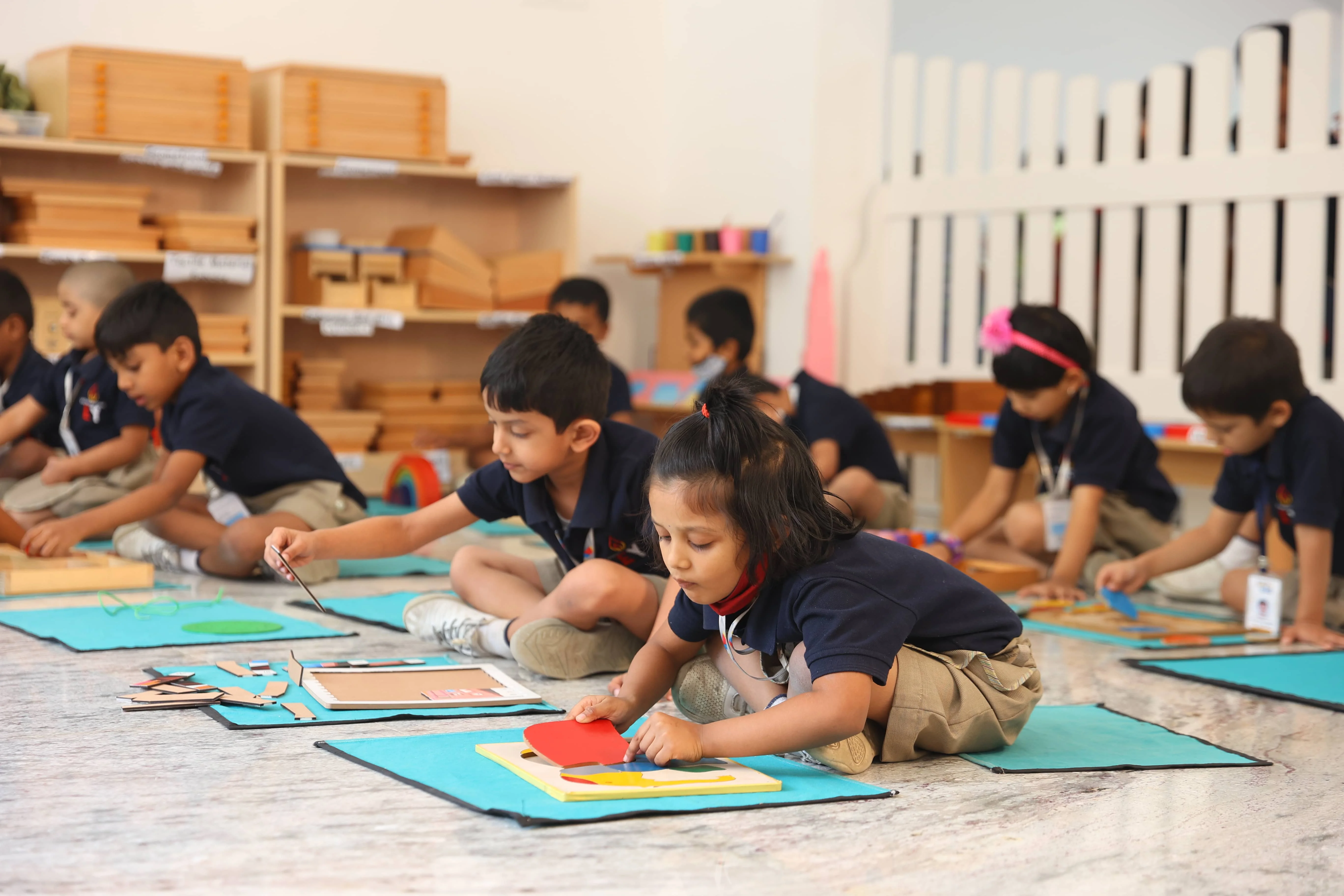
Activities such as pouring, buttoning, and tying laces help children develop fine motor skills, coordination, and independence. These tasks also instill a sense of responsibility and confidence as children learn to care for themselves and their environment.
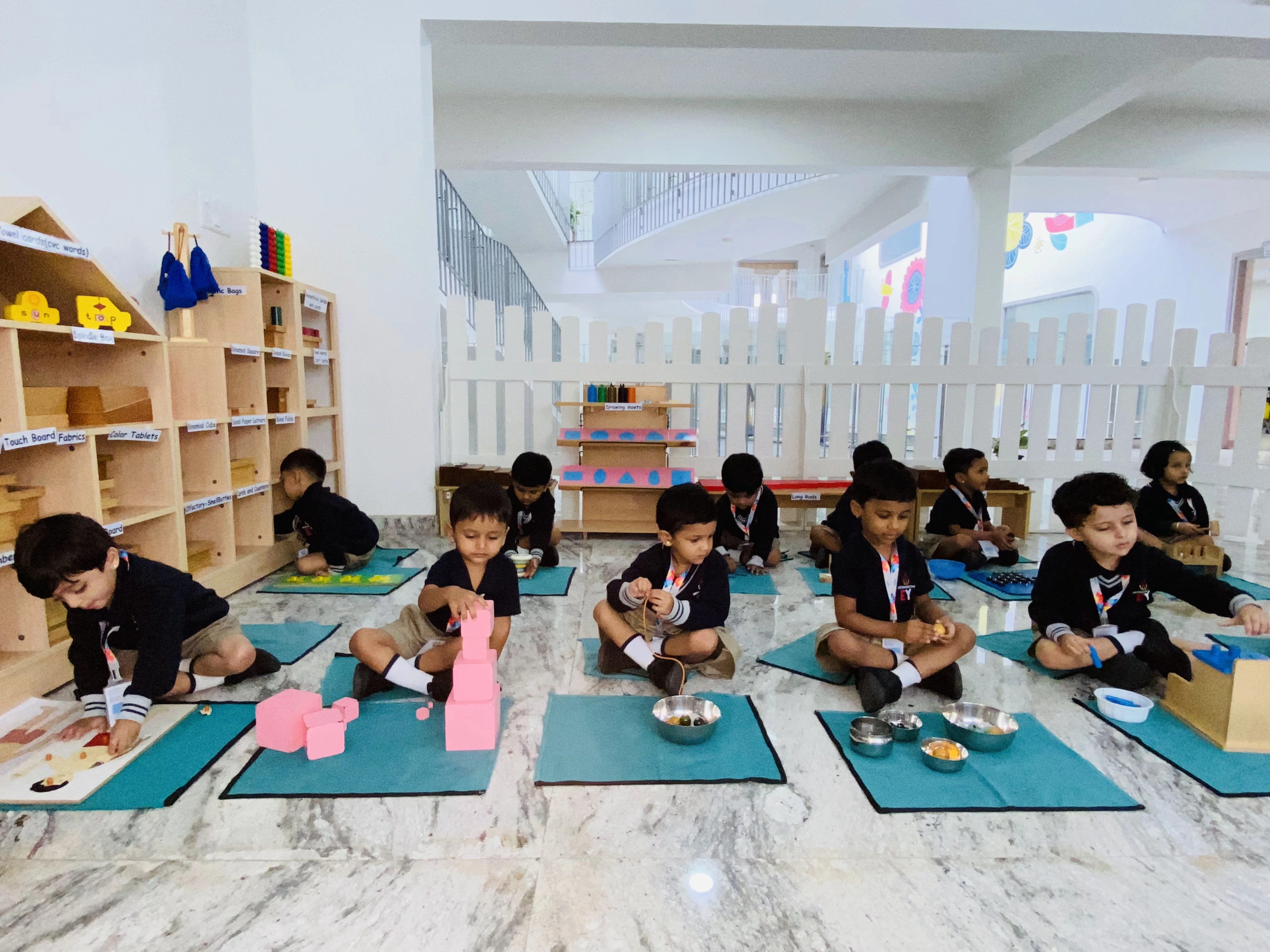
Montessori materials designed to refine the senses allow children to explore differences in size, color, texture, sound, and weight. This sensory education enhances their ability to observe and make sense of the world around them, which is crucial for cognitive development.
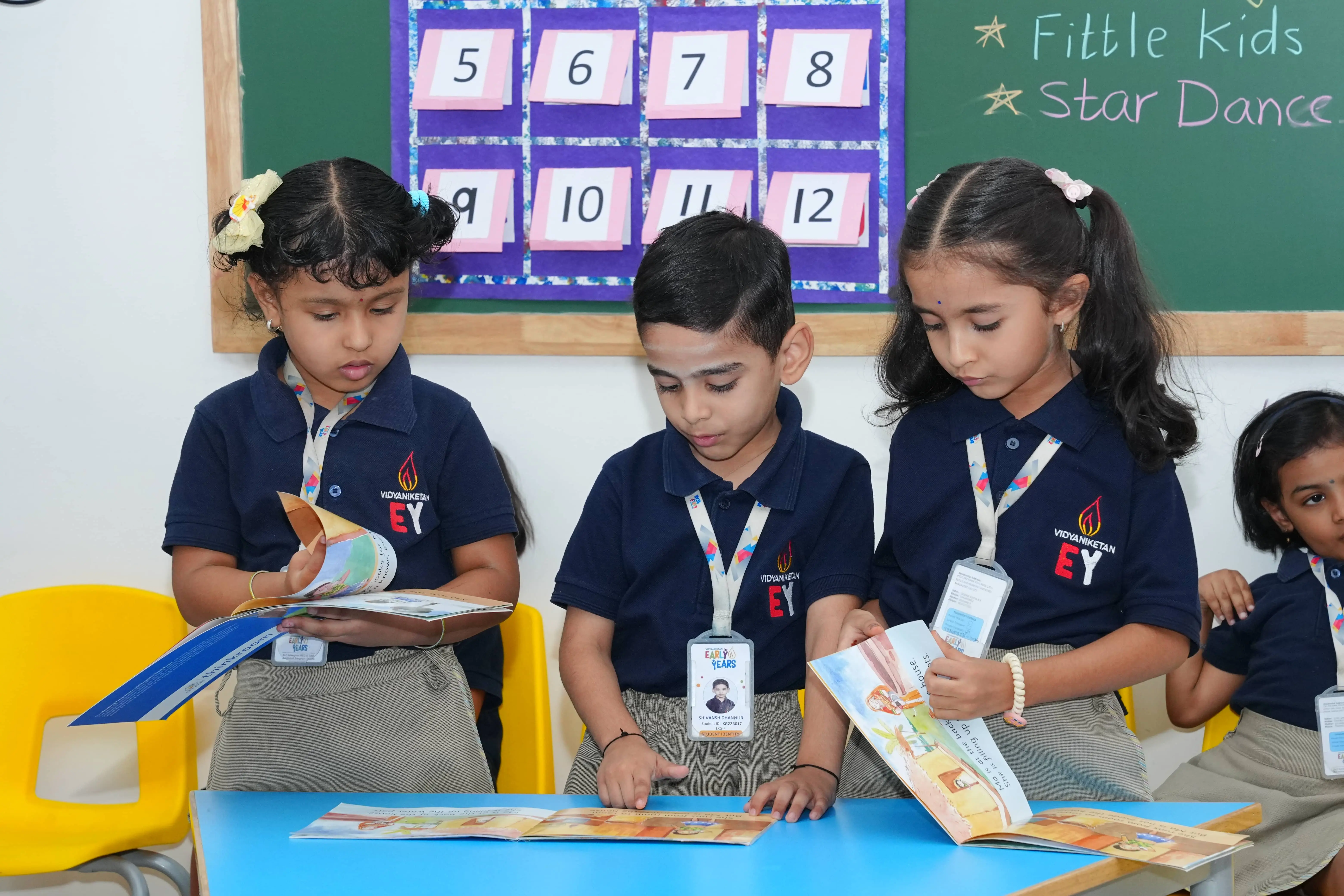
Hands-on materials such as number rods, sandpaper numerals, and bead chains introduce children to mathematical concepts like counting, addition, subtraction, and the decimal system. These tools help children understand abstract concepts through concrete experiences, building a strong mathematical foundation.
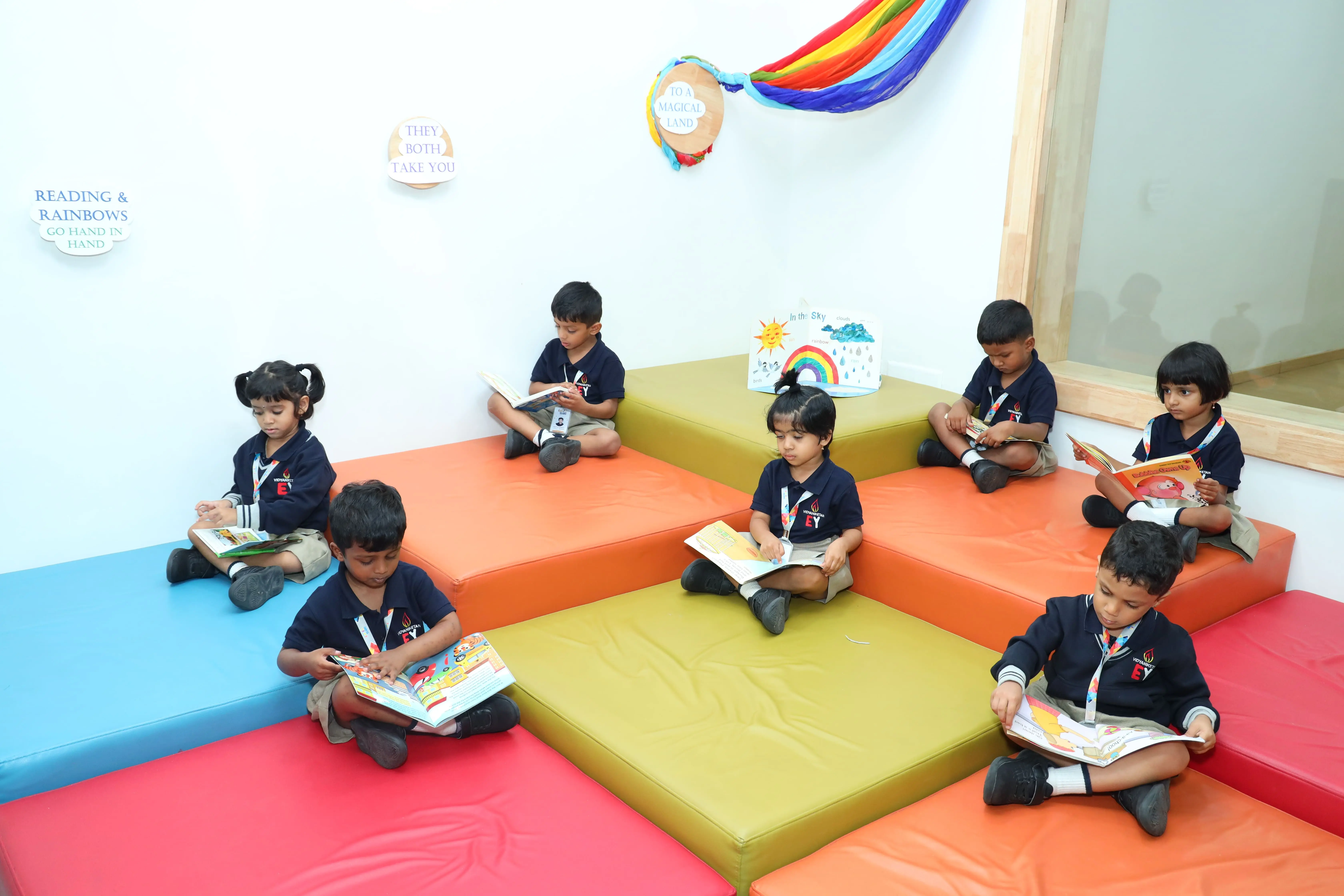
Language materials, including sandpaper letters, moveable alphabets, and various language cards, support the development of reading and writing skills. These resources enhance phonetic awareness, vocabulary, and sentence construction, fostering a love for language and literacy.
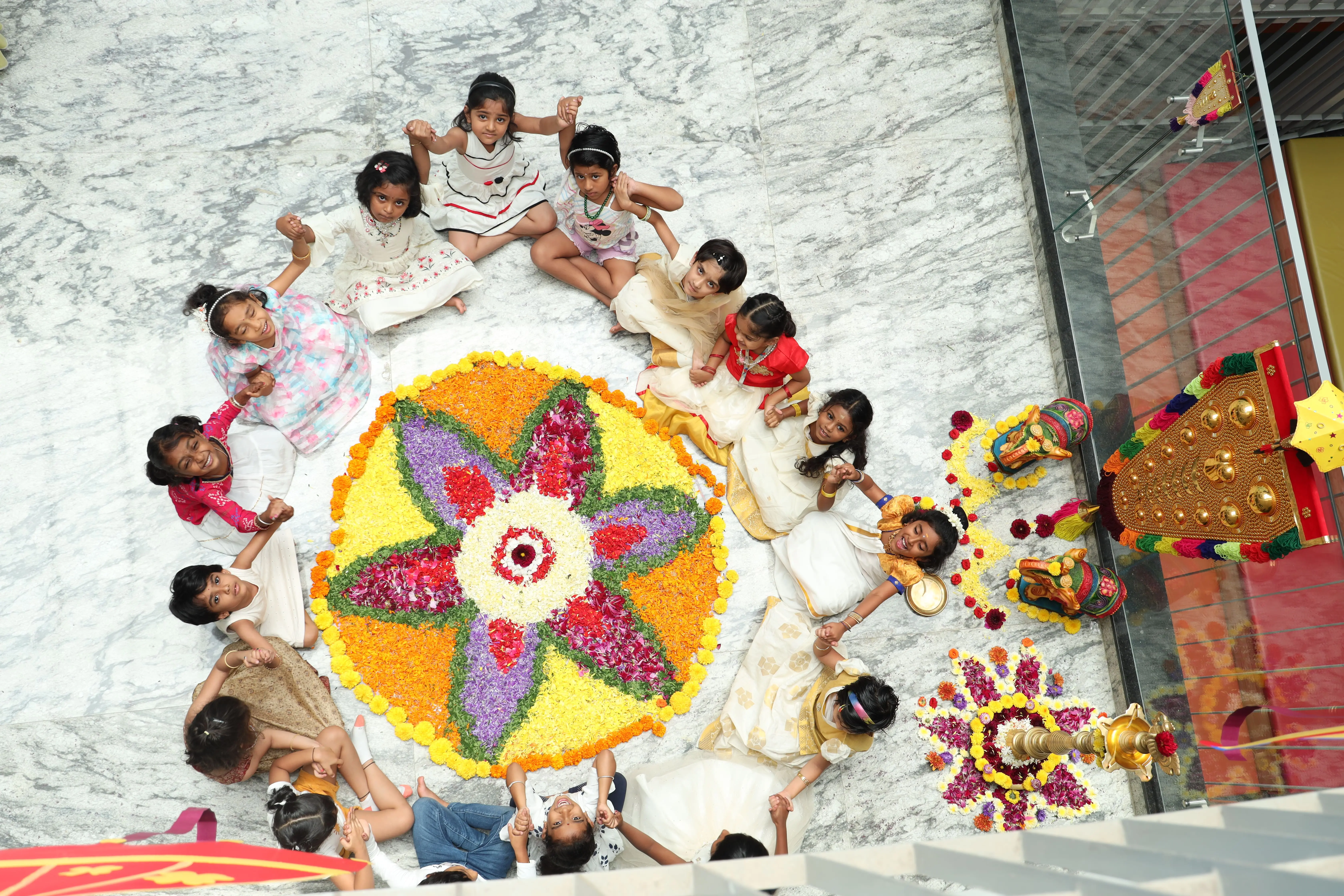
Globes, maps, flags, and cultural artifacts expose children to geography, history, and the diverse traditions of different cultures. This broadens their understanding of the world and cultivates respect and appreciation for cultural diversity.
Overall, the Learning Lab at Vidyaniketan Early Years creates an enriching environment that nurtures cognitive, physical, and socio-emotional development of the young learners.